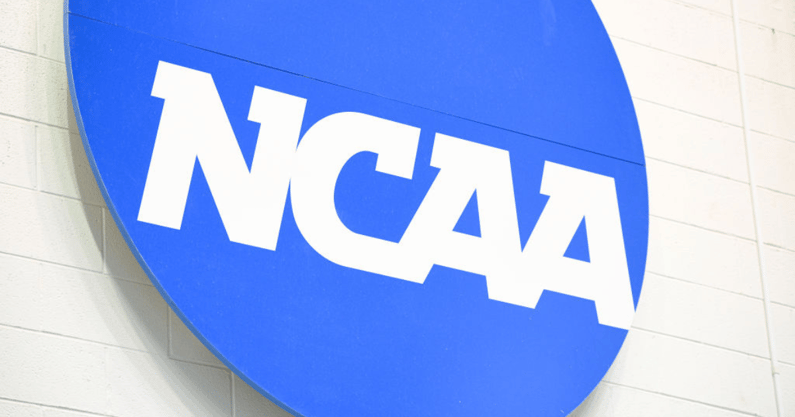NCAA announces new waiver guidelines for multi-time transfers

The NCAA is cracking down on the transfer process, sending a memo to college programs regarding the waiver process for undergraduates who are two-time transfers.
Of course, the NCAA Transfer Portal has taken over college sports, from football to basketball and everything in-between. Evidently, the NCAA is believing it to be getting slightly out of hand, looking for a regression to the mean.
Jon Rothstein of CBS Sports shared the memo to Twitter, which explains the changes that the NCAA is looking to make regarding the process.
“In all sports, four-year undergraduate student-athletes who decide to transfer to a new NCAA school can generally be eligible to compete for the new school provided they have not previously transferred and notify their current school by entering the NCAA Transfer Portal during their sport-specific transfer window,” wrote the NCAA.
“A waver process remains available for undergraduate transfer student-athletes who do not qualify for the one-time transfer exception; however there have been changes made to the ties of requests that will be considered.”
The NCAA then went onto explain the three reasons where an undergraduate transfer waiver would only be considered, citing specific circumstances. Per the NCAA, those reasons are as follow, effective for 2023-24 champions eligibility:
Top 10
- 1Breaking
Shedeur Sanders not drafted
Slide continues
- 2
10 Best Available Players
After Rounds 1-3 of NFL Draft
- 3
Picks by Conference
SEC, Big Ten continue to dominate Draft
- 4Hot
Jalen Milroe
Drafted before Shedeur Sanders
- 5Trending
Shedeur Sanders
Reportedly pranked by fake NFL team
Get the On3 Top 10 to your inbox every morning
By clicking "Subscribe to Newsletter", I agree to On3's Privacy Notice, Terms, and use of my personal information described therein.
- For reasons related to the student-athlete’s physical or mental well-being;
- Due to exigent circumstances outside the student-athlete’s control (e.g., physical or sexual assault or discrimination based on a protected class); or
- Assertions involving diagnosed education impacting disabilities
As for as reasons for an undergraduate transfer waiver to be denied, the NCAA provided three examples of both academic and athletic reasons.
Academically, a waiver will be denied if a degree program doesn’t meet the student-athlete’s expectations, the perceived prestige of an institution’s degree program doesn’t meet the student-athlete’s expectations or if the student-athlete is transferring to change majors.
Athletically, inefficient reasons include the lack or change of an student-athlete’s participation, including no participation opportunity, a reduction in playing time or a change in the student-athlete’s position or role on the team. Additionally, no waiver will be granted for a potential change in the student-athlete’s athletics scholarship, or a coaching change, the latter becoming one of the biggest reasons for transferring we’ve seen in college athletics over recent seasons.
Obviously, the NCAA isn’t fond of college athletes switching programs willy-nilly. It’s become commonplace to either follow a coach to a new school, or leave for the lack of opportunity as an undergraduate. Evidently, that will no longer be the case in the future, as the NCAA cracks down on the transfer portal.